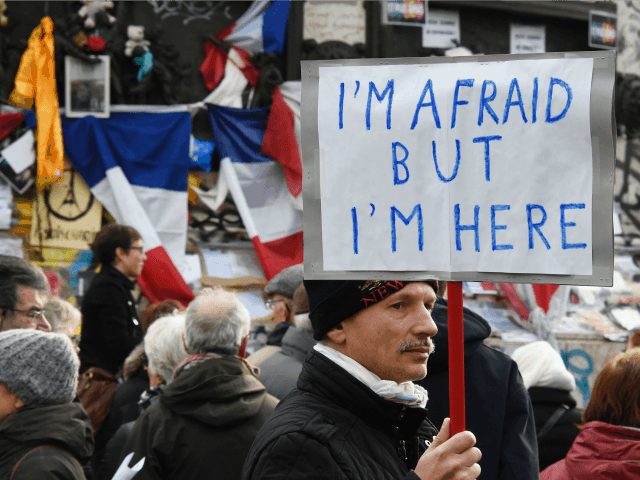In a sobering reflection on the history and character of Islam, a celebrated Catholic scholar is calling on the world to open its eyes to the reality of Muslim violence as intrinsic to the nature of Islam itself, rather than its abuse.
Known as an “old-school Jesuit,” Father James V. Schall taught Political Philosophy in the Department of Government at Georgetown University for many years and has written more than two dozen books on a variety of topics, both popular and academic. In his new essay, “Realism and Islam,” Schall insists that the Muslim religion must be evaluated on its own terms rather than through the lens of the Judeo-Christian West.
Islam’s consistent advocacy of violence, which has been practiced “from its seventh century beginning,” has a purpose, Schall proposes. “This purpose is, ultimately, religious and pious.”
Whereas the so-called “moderate” Muslims who claim they can read their religious texts as if they did not advocate and justify violence “may be applauded for trying to mitigate the historic record,” Schall writes, “the fact is that those who see this violence as essential to the religion have the better side of the argument and are the better witnesses to what historic Islam stands for.”
Schall suggests that readers recall “recent events from ‘9/11,’ the bombings in Spain, England, Mumbai, Bali, Fort Hood, San Bernardino, twice in Paris, Lahore, and Brussels, not to mention the persecutions and beheadings in Pakistan, Iraq, Yemen, Nigeria, Libya, Somalia, Chad, Syria, and the Sunni/Shiite inner-Muslim battles.”
What is the most plausible way to judge such continuing violence and its origins? Schall asks. “To make this assessment, we have to acknowledge that Islam, in principle, is actually and potentially violent throughout its entire history.” Moreover, he writes, the basic reason for this method “is obedience to the Law of Allah.”
“What we see now is little different from what has been seen throughout the centuries wherever Islam is found,” he says.
Westerners mistakenly assume that while some Muslims may be violent, Islam itself is not, Schall declares, because many assume that all religions must be peaceful by their nature. Yet just because Islam is a “religion,” Schall insists, does not mean that it is therefore not “violent.”
Father Schall is also quick to assure readers that these things are said “not to promote counter violence against Muslims or to justify Muslim violence against others,” but simply to take an honest look at Islam itself, to understand the religious phenomenon we are dealing with.
“And while it may be politically incorrect to state these things, they need to be stated and are in fact the truth—things that both Muslims and non-Muslims need to hear and consider,” he adds.
“The designated and determined goal of the conquest of the world for Allah has been reinvigorated again and again in world history from the time of Mohammed in the seventh century,” Schall states. “These revivals and expansions, which have only been temporarily halted by superior counterforce, have roots in the Qur’an itself and in its commentaries.”
Schall says that the Western tendency to simply call Muslim violence “terrorism” is demeaning and insulting to believing Muslims who “see themselves carrying out the will of Allah, even sometimes to their own death in doing so.” Rather than terrorism, he insists, Muslims see their violence as “a religious endeavor to conquer the world,” which they understand to be “an act of piety.”
A straightforward reading of the Qur’an, Father Schall proposes, reveals a deity who can command contradictory things, because according to the Muslim understanding, Allah is “pure will, not bound by Logos or reason.” Therefore, “Allah is not limited by any distinction of good and evil,” he writes.
Unfortunately, both in Europe and America, decades of students have been given a “sanitized education” that systematically excludes an honest portrayal of the history and theology of Islam, Schall says, which limits their ability to assess what is going on in the world.
Because of this gaping lacuna, “most citizens are simply not equipped to face the forces now reappearing in the world,” he adds.
In his essay, Schall also asserts that the loss of Christian faith in the West and the rise of Islam are connected. The expansion of Islam was justified in part by its charge of moral decadence against the West, with its declining birth rates and civil undermining of the family.
In his argument for political, historical and theological realism regarding Islam, Father Schall joins a growing band of scholars and observers calling for a more honest evaluation of Muslim violence.
If their thesis is correct, a new conversation may be needed about the reality of Islam and its relationship with violent jihad. If the catalyst to terror is not Muslim “extremism” but Islamic belief itself, the West must face the fact that Islam is simply not a “religion of peace.”
Source: Breitbart

